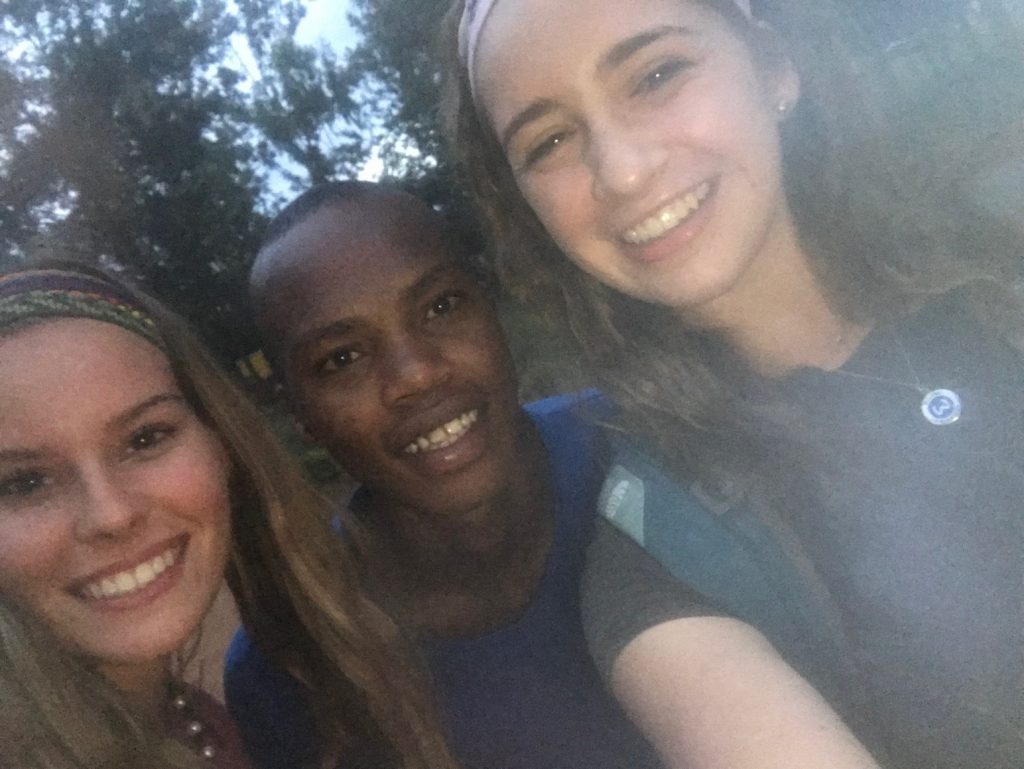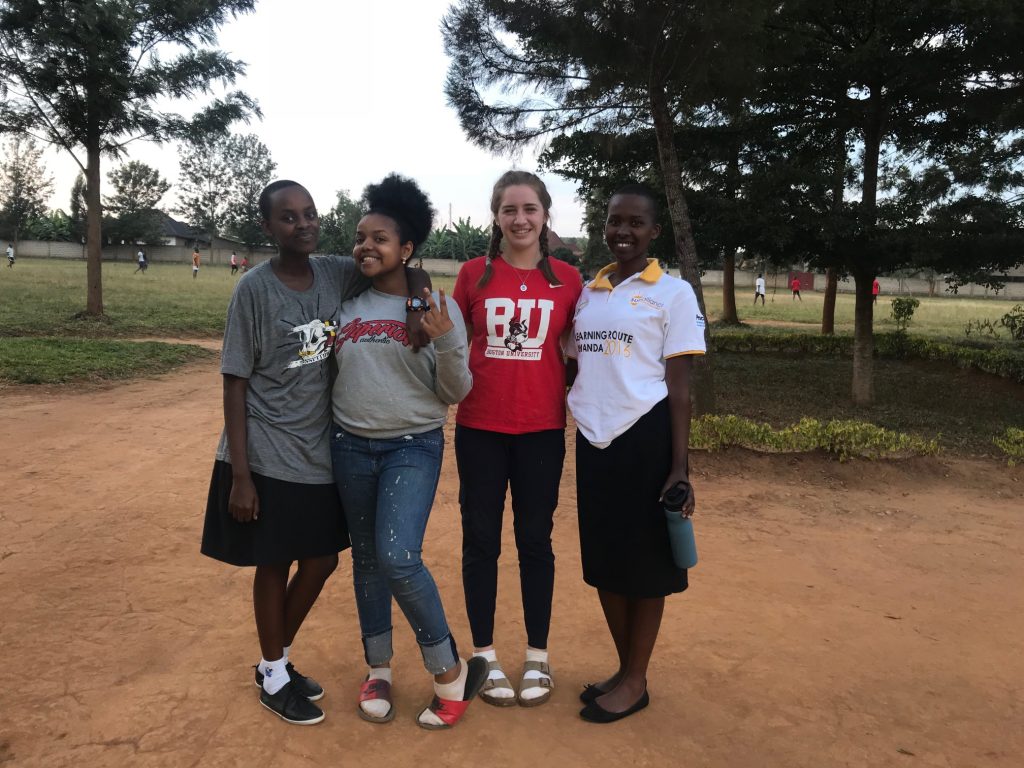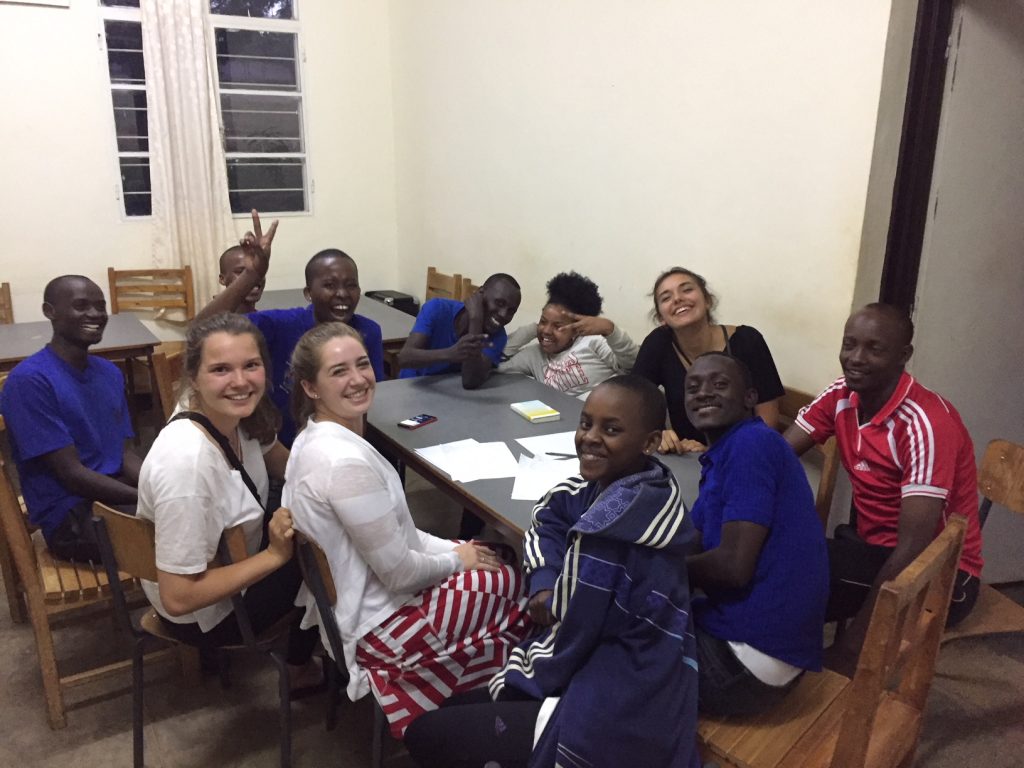This post features student writing.
Before our trip to Rwanda began, I already had an idea of what I wanted to do for an independent project: speak to locals about the genocide and their experience. However, after orientation, where we learned more about the genocide and its lasting effects, I realized it may not be appropriate to ask people, only putting others in an awkward, uncomfortable and emotional position. Instead, I decided to ask students at Nyamata High School about their experience in school, their desires and aspirations for the future and about how the genocide and reconciliation afterwards is taught to them. Sharing the same interest as another girl in my group, we set off to the high school one afternoon, unsure of how to get in, who to speak to, where the principal was located, or how the presentation of our project would be delivered.
Upon arrival at the front gate of Nyamata High School, we realized the gate-keeper did not speak English. So, we yelled and waved to the students on the school’s lawn urging them to come meet us. Luckily, we met a very helpful 16-year-old sophomore, John, who helped translate to the guard our request. We ended up with what we thought was the director’s number, so we called but, the language and accent barrier prevented us from communicating. We wrote down the time the school day ends so that the next day we could return to the school without interrupting classes, while having free time to look for teachers or the director to speak to. Thankfully, we succeeded in carrying through with this plan. We met an English teacher exiting the school, who led us to the director. After speaking to the director, we gained his approval, both of us excited to participate in a rare interaction between foreign students.
A few days later, we returned to the school to drop off our interview questions. The headmaster not only approved the questions, but immediately pulled 7 students in for us to talk to right then and there. Within ten minutes of arriving, we began an hour and a half conversation with the most dedicated, appreciative and motivated teenagers I have ever met.
Each of the students want to further their education after high school and attend a university. Unlike myself (and most students my age in the United States), they have distinct interests having to do with being entrepreneurs, leaders in their community, economics, and in public security. Beyond their future interests, one repeated idealistic notion, which I very much admired, was that each of the students was so inspired by their President, Paul Kagame; they wanted to be him, and if not the President of their country, then a leader as accomplished and well respected as himself. The students’ love for school and their country was not only evident in their response to education and future plans, but also in the way they spoke of how they are taught about the Rwandan genocide.
Rwanda believes the only way to heal and prevent genocide is to talk about hatred, violence, peace, reconciliation and genocide; their motto is spread the word to end the action. Rwandan schools educate the first generation’s 24 years after the genocide by discussing the causes and effects of the genocide, and teaching children it is better to find peace in forgiveness than to act out of hate. This learning process is introduced to students in their fourth year of secondary school – or tenth grade. One of the boys shared a personal story of his grandmother, a genocide survivor whose children and family were nearly all slaughtered. Years after the genocide, during one of the genocide holidays in the three month period when the genocide took place, (April to July), a man approached David’s grandmother and asked her for her forgiveness for taking part in the killing of her relatives- an apology and request to which she acknowledged and forgave. The students also mentioned that they focus less on the brutality and more of the fact that no problems were solved, but instead created out of evil. So, the students study very closely the success after the genocide and the process of reconciliation. This has inspired them to keep an open mind and to be innovative thinkers, teaching the students to create solutions to massive problems in the shortest, most effective way possible. President Kagame acts as the students greatest model of this specific thinking process and is a crucial figure and contributor to the students’ drive to be impactful leaders.
To say that I am satisfied with my conversation with the Rwandan boarding students is an understatement. I am privileged and humbled by the experience, as no students that I have ever encountered before have demonstrated such powerful and strong traits, utter willpower and determination, patriotism, and love/value/appreciation for education. We are all so lucky to have access to education at all-to be taught about situations and conflicts around the world throughout history, to study math and sciences, to explore new languages…but, how often do we stop and express what a treat it is to be gifted the resource of a school and the tool of knowledge? I look forward to continuing my friendships with the students we met and, look forward to hearing about and witnessing their bright and prosperous futures.
-Madeline




